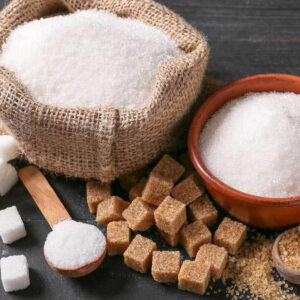Many people compare beet sugar vs cane sugar to understand their variations in flavor and granulation.
Many people compare beet sugar vs cane sugar to understand their variations in flavor and granulation.
Blog Article
Exploring the Distinctions in Usages and Advantages Between Beet Sugar Vs Cane Sugar
In the culinary world, the selection in between beet sugar and cane sugar is not simply about sweetness however involves a nuanced consideration of taste, application, and influence. While both sugars stem from various plants, each undergoes special manufacturing procedures that subtly influence their qualities and viability for numerous recipes.
Origins and Production Processes of Beet and Cane Sugar

Walking stick sugar, on the other hand, comes from the sugarcane plant, an exotic yard indigenous to Southeast Asia however currently grown in tropical areas worldwide - beet sugar vs cane sugar. The production of cane sugar starts with the harvesting of cane stalks, which are squashed to launch the juice.

Nutritional Content and Health Considerations

When comparing the nutritional content of beet sugar and cane sugar, it comes to be noticeable that both types basically offer the same caloric values, with about 16 calories per tsp and no significant nutrient diversity. Each is made up nearly totally of sucrose, which is a simple carb that provides fast power but lacks vitamins, minerals, or fiber. This similarity extends to their influence on health, specifically worrying blood glucose levels. Both sugars, when eaten in excess, can contribute to elevated blood sugar levels, a danger aspect for diabetes and other metabolic disorders. Extreme intake can lead to weight gain and dental troubles, as both sugars are equally cariogenic, promoting tooth degeneration. From a health point of view, moderating consumption of any sort of sugar, whether from beet or cane, is advisable to prevent these prospective adverse results on well-being. Therefore, neither holds an unique benefit over the other in regards to wellness benefits.
Taste Accounts and Culinary Applications
In spite of their similar chemical frameworks, beet sugar and cane sugar differ subtly in flavor, which can affect their usage in numerous culinary contexts. Walking cane sugar usually lugs a hint of molasses, also in its polished kind, offering a cozy, caramel-like undertone that enhances baked products, coffee, and chocolate-based recipes. On the various other hand, beet sugar is identified by its very improved, neutral preference, making it a versatile sugar that does not alter the flavor accounts of dishes.
Environmental Effect and Sustainability
While both beet and cane sugars are stemmed from plants, their ecological impacts differ dramatically because of the check these guys out distinctive methods of farming and processing needed for each and every. Sugar beet growing frequently entails comprehensive automation, which can increase fossil fuel consumption and carbon discharges. Beets can be expanded in cooler climates and call for much less irrigation, potentially lowering water use compared to sugarcane. Sugarcane, on the other hand, is normally expanded in exotic areas where it counts greatly on irrigation and a much longer growing period, increasing its water impact.
Moreover, the processing of sugarcane commonly creates a considerable quantity of waste, consisting of bagasse, which, although usable as biofuel, often adds to air pollution if shed inefficiently. Sugar beet handling makes use of even more of the raw products, causing less waste. Both industries encounter challenges in minimizing their environmental footprints, yet ongoing advancements in farming techniques and waste administration are intending to enhance sustainability.
Economic Elements Affecting the Sugar Industry
The financial dynamics of the sugar market are dramatically influenced by international market demands and trade plans. In regions where sugarcane or sugar beet production is subsidized, producers may have a monetary advantage that enables them to offer reduced prices on the worldwide market.
Additionally, variations in global demand for sugar, influenced by dietary trends and commercial usage in food items, straight impact rates and manufacturing degrees. beet sugar vs cane sugar. Weather problems also play a critical role, as they can significantly impact crop yields and, blog consequently, the published here supply chain. This variability introduces a degree of economic uncertainty that can bring about investment volatility in sugar manufacturing sectors, affecting decisions from planting to market technique
Verdict
In verdict, both beet and cane sugar have unique top qualities that fit various culinary needs. While cane sugar conveys a rich flavor ideal for enhancing baked products, beet sugar's neutrality is perfect for lighter recipes.
Report this page